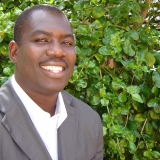Our results show that a preservation initiative that is aimed at increasing grazing and hunting opportunities would be supported by dryland communities. Although the Khomani San indigenous people are traditionally hunters and gatherers, over time a significant number have switched to livestock farming. Given that livestock farming is one of the main livelihood sources in the Kgalagadi dryland area, the Khomani San place a value on the ecosystem services that support their livelihood. The willingness of local people to pay to preserve the services they depend on is lower, in monetary terms, than the willingness to pay of park visitors to see the features of the ecosystem that attract tourists. That means one group can pay for conservation goals that would support the livelihood of the other.
The economic valuation of dryland ecosystem services in the South African Kgalagadi by the local communities
EfD Authors
Country
Sustainable Development Goals

